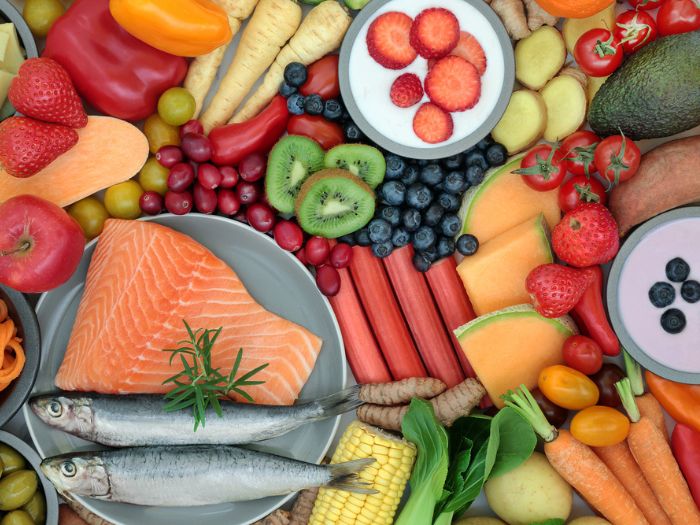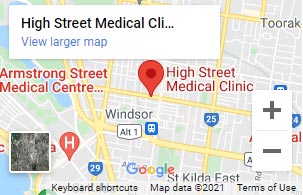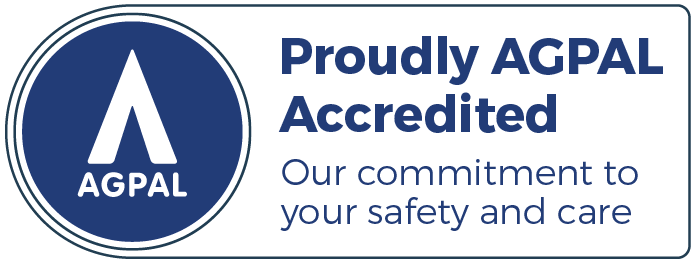IBS, also known as Irritable Bowel Syndrome, is a chronic condition affecting approximately 3.5% of Australians.
It is defined by the Rome Foundation, an international non-profit organisation which develops and promotes research on gastrointestinal disorders, including IBS as ‘recurrent abdominal pain that occurs at least once a week in the last 3 months…’ This disorder results in symptoms that include:
- Abdominal pain or discomfort
- Bloated stomach
- Excessive wind
- Chronic diarrhoea or constipation (It is considered chronic if the symptoms have lasted for at least 6 months)
For sufferers of IBS, the condition can have a profoundly negative impact on day-to-day life, both physically and mentally. Symptoms can restrict or cause an avoidance of socialising or ability to work. Not, only that, but sleep quality may be impaired if the symptoms trigger when trying to rest. There is also increased anxiety about the presentation of symptoms, including how to manage the symptoms from a dietary aspect, both at home and when out. This is why it is important to seek professional healthcare advice; doing so means access to qualified advice and tailored recommendations based on individual circumstances to improve physical and mental wellbeing.
*It is important that IBS is medically diagnosed, to rule out any other medical conditions that may be triggering the symptoms.
The low FODMAP diet
The low FODMAP (Fermentable Oligosaccharides, Disaccharides, Monosaccharides and Polyols) diet is one area that has been developed and gained global acceptance with its effectiveness in helping reduce the impact of IBS symptoms for 75% of individuals through diet. Developed by researchers at Monash University, including Professor Peter Gibson and Dr. Susan Shepherd, the low-FODMAP diet focuses on limiting or avoiding particular carbohydrates in foods which are not easily absorbed in the small intestine, and which can trigger IBS symptoms in some people, such as bloating and gas.
How does the low FODMAP diet work?
The low FODMAP diet is a 3-step process, of which the first 12 weeks are essentially swapping out high FODMAP foods for low FODMAP foods for the first 6 weeks, before gradually reintroducing the high FODMAP foods and monitoring symptoms to determine what foods, including quantity, are triggering IBS. After this period, the information acquired from the re-introduction phase is analysed to create a personalised diet that reduces IBS flareups.
Getting started with the low FODMAP diet can be overwhelming, but registered dietitians can help provide personalised guidance on meeting its requirements, whilst ensuring that sufficient nutrients are being consumed. In addition to this, tracking foods consumed and symptoms experienced is pivotal in helping to accurately identify foods that trigger IBS.
What can you eat on the low FODMAP diet?
It is at this point when you may be wondering, well, what can I eat on a low FODMAP diet, how restrictive is it?
As Monash University points out, it can be tricky in determining what foods are high or low in FODMAPS, and that is why, we recommended that you speak with your GP and a registered dietitian before embarking on the low FODMAP diet. Also, this isn’t intended as a lifestyle diet; instead, its purpose is to identify and isolate foods that trigger IBS, and because this varies from person to person, some foods, including portion size may be more tolerable than others.
As for strictness, the first 6 weeks are the strictest because high FODMAP foods are replaced by low FODMAP foods, after this period, the gradual reintegration of high FODMAP foods is undertaken. Ultimately, the objective is to find what foods, including portion size can be consumed, that do not trigger IBS symptoms, so that a personalised dietary plan can be tailored specific to individual needs and likes, whilst ensuring adequate consumption of nutrients.
Nevertheless, some foods on the low FODMAP diet include:
- Proteins: Eggs, Plain meats, Poultry, Seafood.
- Breads and Grains: Rice, Oats, Polenta, Sourdough spelt bread
- Vegetables: Lettuce, Tomato, Carrots, Potato
- Fruits: Unripe Banana, Grapes, Oranges, Rockmelon, Kiwi fruit
- Dairy: Lactose-free milk and yoghurt, Almond milk, Brie
For an expansive list, Monash University has an app to help people with products and ingredients, and if you are interested in recipes, see ‘Further Reading’ below, but the low FODMAP diet should not be undertaken prior to consulting with a GP and a registered dietitian.
Low-FODMAP not improving IBS, now what?
As previously stipulated, the low-FODMAP diet is proven successful for approximately 75% of IBS sufferers, however for the other 25%, the question naturally comes to ‘I’ve tried it, it didn’t help, now what?’.
Your doctor will consider what IBS symptoms are present when determining treatment options, as the causes for IBS may not necessarily be food related. Symptoms can also be caused by stress, infection and medication. Whilst, there is no IBS specific medicine, prescription medicines such as antidiarrhoels, antispasmodics, antibiotics and antidepressants may help to reduce symptom severity. Additionally, mental health therapies may also be helpful in reducing IBS for triggers caused by stress and anxiety.
IBS is a chronic condition that can significantly impact the quality of life, however, for those suffering symptoms, there are ways to manage the symptoms, including quite successfully the low-FODMAP diet, medicines and therapies.
However, as always, when experiencing symptoms, it is important to first talk to your doctor, so that they may determine if the symptoms are in fact caused by IBS, and not a different condition.
Once, that discussion has been had with your GP, and it has been determined to be IBS, then an appropriate and personalised plan in consultation with other health practitioners will be put in place to assess, treat and manage this chronic condition.
Further Reading
For further reading on Irritable Bowel Syndrome (IBS) see:
- International Foundation For Gastrointestinal Disorders.
https://aboutibs.org/ - IBS Awareness Month – Amy’s Story.
https://gutfoundation.com.au/ibs-awareness-month-amys-story/ - IBS Awareness Month – Rafaella’s Story.
https://gutfoundation.com.au/ibs-awareness-rafaellas-story/ - Low FODMAP Recipes.
https://www.monashfodmap.com/recipe/ - Better Health Channel. https://www.betterhealth.vic.gov.au/health/conditionsandtreatments/irritable-bowel-syndrome-ibs












